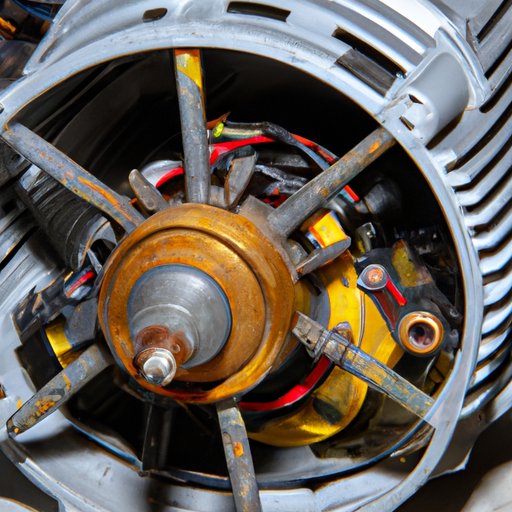
Introduction
The alternator in your vehicle is responsible for keeping the battery charged while the car is running. If your alternator fails, it can lead to a range of problems, including a dead battery, electrical issues, and engine stalling. Knowing how to check if your alternator is bad can help you avoid these issues and ensure your car stays running smoothly.
In this article, we’ll cover the warning signs of a failing alternator, simple DIY tests you can try at home, routine maintenance tips, common causes of failure, replacement options, and prevention strategies.
Identifying the Warning Signs
One of the most common signs of a failing alternator is dimming headlights. If your lights are less bright than usual, or if they flicker when you turn on other electronics like the radio or air conditioning, it could be a sign that your alternator is struggling to keep up with the demands on your car’s electrical system.
Other common red flags include a warning light on your dashboard that says “ALT” or “GEN,” a dead battery, or difficulty starting your car. These symptoms can gradually get worse over time, so it’s important to recognize them early and not ignore them.
DIY Tests
You can perform a few simple tests at home to determine if your alternator is the problem. First, check the voltage on your battery with a voltmeter. Start the engine and check the battery voltage with the voltmeter. The voltage should increase from around 12 volts to around 14 volts if the alternator is functioning correctly. If the voltage remains around 12 volts, the alternator may not be working correctly.
If the battery voltage is good, check the alternator output with a multimeter. To do this, disconnect the negative terminal from the battery and connect the leads from the multimeter to the battery terminals. Start the engine and check the voltage reading on the multimeter. A reading between 13.5 and 15 volts means the alternator is functioning correctly. If the reading is outside of this range, you may need to replace your alternator.
Routine Maintenance
Preventing alternator failure starts with regular maintenance. When you take your car in for routine service, make sure your mechanic checks the condition of the alternator and its connections. Loose or corroded connections can cause the alternator to fail, so it’s important to keep them clean and tight.
It’s also essential to keep your alternator clean and free of debris. Dirt and dust can accumulate on the surface of the alternator and lead to overheating, which can cause damage over time. Use compressed air to blow dust and debris off the alternator, but avoid using water or cleaning chemicals to prevent damage.
Common Causes of Failure
Alternator failure can be caused by a range of factors. One of the most common culprits is a short circuit in the electrical system. This can be caused by damaged cables, worn-out components, or a faulty battery. Another common cause of alternator failure is a worn-out belt that is not providing the alternator with enough power.
You can prevent some of these issues by using a high-quality battery that is designed for your vehicle. Cheap batteries can fail quickly and put strain on your alternator. You can also prevent problems by regularly checking the condition of your cables and connections and replacing them if they show signs of wear.
Replacement Options
If you need to replace your alternator, there are a few things you should consider. First, think about whether you want to do the job yourself or take it to a mechanic. Replacing an alternator can be a complicated task, so if you are not experienced with car maintenance, it’s best to seek professional help.
You should also think about how much you are willing to spend. Alternators can range in price from around $100 to $300 or more, depending on the make and model of your car. Look for a high-quality, reliable alternator that fits your budget and meets the needs of your vehicle.
Prevention Strategies
You can take several steps to prevent alternator failure in the future. One of the most important is to use the right battery for your vehicle. Your car’s manual will recommend the appropriate type and size of battery, so make sure you follow those guidelines.
You can also prevent problems by disconnecting electronics like your phone or GPS when the car is turned off. These devices can put a strain on your battery and cause it to drain faster, which can lead to problems with your alternator over time.
Conclusion
Checking your alternator for signs of wear and tear and performing routine maintenance can go a long way towards ensuring your car’s electrical system stays in good working order. If you notice any warning signs of a failing alternator, don’t wait to take action. Whether you choose to replace your alternator yourself or take it to a professional, taking care of the problem early can help you avoid more serious issues down the road.
By following the tips and strategies outlined in this article, you can keep your alternator functioning well and ensure a safe and reliable driving experience for years to come.




